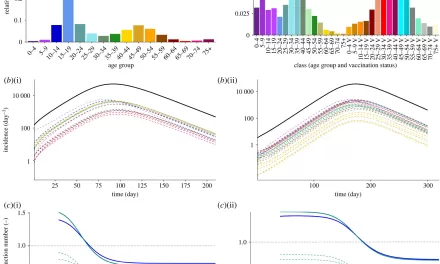Port Sudan, Sudan – Sudan’s Federal Ministry of Health (FMOH) will launch a polio vaccination campaign in April 2024 in response to a new emergence of variant poliovirus type 2 reported in January 2024. It was detected in six wastewater samples collected from September 2023 to January 2024 in the Port Sudan locality, Red Sea State.
The FMOH, with support from the World Health Organization (WHO), has completed field investigations and a risk assessment to determine the extent of the virus circulation. Preparations for a polio vaccination campaign in April 2024 in Red Sea, Kassala, Gedaref, River Nile, Northern, White Nile, Blue Nile and Sennar states are under way, with a differentiated approach for the rest of the states as conditions allow.
This new detection comes 14 months after Sudan declared an outbreak of variant poliovirus type 2, from an unrelated emergence of the virus, which was detected in a 4-year-old child in West Darfur in October 2022. In response to that outbreak, the FMOH, in collaboration with the United Nations Children’s Fund (UNICEF) and WHO, delivered and distributed 10.3 million doses of oral polio vaccine in a nationwide polio vaccination campaign in March 2023, reaching around 8.7 million children aged under 5 years (98% of all children of this age group in Sudan).
While no vaccination campaign has taken place since April 2023 due to the ongoing conflict, surveillance for poliovirus in children – conducted by searching intensely for acute flaccid paralysis (AFP), the most common indicator of polio infection – and in wastewater has been strengthened to swiftly detect any presence of the virus.
“Since the escalation of the conflict, the Federal Ministry of Health has worked closely with WHO and UNICEF to develop and implement the Polio National Emergency Action Plan. The new detection has only redoubled our commitment to safeguarding our children’s future. In collaboration with partners, we are mobilizing an outbreak response campaign to ensure that every child under 5 years in accessible areas receives the polio vaccine, and special plans will follow for hard-to-reach areas,” said Dr Dalya Eltayeb, Director-General of Primary Health Care in Sudan’s FMOH.
SudanWhile no child has been paralysed due to the new emergence, the detection of poliovirus in wastewater samples puts children across the country at high risk. The breakdown in health services, including routine vaccination, significantly increases the risk of spread of communicable diseases amid outbreaks of cholera, dengue, malaria and measles reported from numerous states.
Noting the continued support and commitment of public health officers, Dr Mohammad Taufiq Mashal, Polio and Immunization Team Lead at WHO Sudan, said, “Despite extremely challenging conditions, our health workers have managed to sustain surveillance for poliovirus, which has allowed us to detect and respond to this new poliovirus strain in a timely manner.”
There is no cure for polio, a highly infectious viral disease that mainly affects children aged under 5 years, but it can be prevented through vaccination. Caregivers must ensure that during upcoming vaccination campaigns, all children aged under 5 years receive oral polio vaccine drops every time they are offered. They should also receive routine vaccinations according to their age.
“The ongoing war is undoing the enormous gains the country has registered on childhood vaccinations,” said Dr Tedla Damte, Chief of Health and Nutrition at UNICEF Sudan. “Millions of displaced children on the move cannot be protected against life-threatening diseases, like polio, yet these can be prevented through vaccination. Health systems are overstretched, subsequently impacting the delivery of health services including vaccinations. UNICEF remains committed to supporting vaccination campaigns to protect children, no matter what,” he emphasized.
Further details on upcoming polio campaigns will be communicated by the FMOH, UNICEF and WHO.












